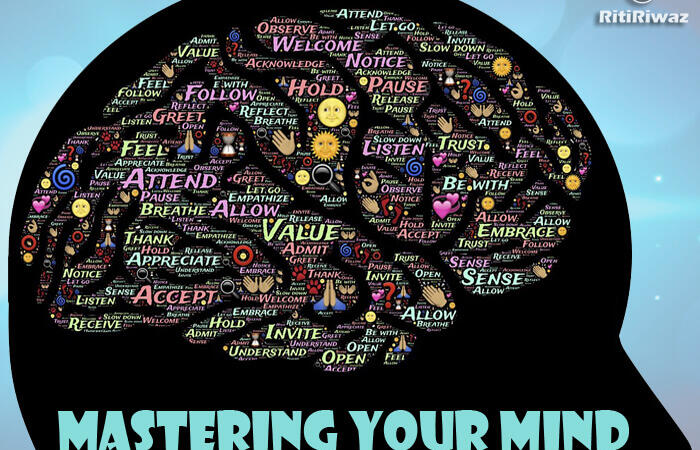4 Ways To Keep Your Brain Sharp

God created this amazing diversity of life on earth which has incredible beauty from the grandeur of oceans and mountain ranges to the tiny leg of honeybees. God’s glory can be seen in many different aspects of creation. The greatest of all creations is man himself, the marvelous machine—precise and efficient. The human “being” which is a lot more than the “body” is a masterpiece beyond comparison. The human body has a dynamic framework of bone and cartilage called the skeleton. The human skeleton is flexible, with hinges and joints that were made to move. But to cut down harmful frictions, such moving parts must be lubricated.
The brain is the center of a complex computer system more wonderful than the greatest one ever built by man. The body’s computer system computes and sends throughout the body billions of bits of information, information that controls every action, right down to the flicker of an eyelid.
Because our brains make up the very essence of who we are, we need them to function well throughout our entire lifespan. The brain presumably reaches its peak upon physiological maturation, which is somewhere around 25. From then on, some decline sets in. It’s a normal part of aging to experience memory loss, sensory changes, and even trouble with problem-solving. There are some ways to help keep your mind sharp, we must keep our bodies moving, the machines that house and support our brains.
Many studies point to the fact that people who exercise regularly, eat well, and maintain healthy body weights are mentally sharper than their sedentary and overweight contemporaries. It is also a proven fact that those who suffer from poorly managed chronic illnesses such as hypertension, diabetes, high cholesterol, and heart, kidney, and liver disease also lag mentally. And while sometimes these diseases pop up against all odds, without any fault of the person who becomes ill, they are often avoidable.
In addition to choosing a physically healthy lifestyle, staying connected with others is vital. Stimulating relationships, in which mutual caring and interesting interchange are natural parts of each day, promote good mental function. Conversely, a lack of community, which leads to isolation and loneliness, does not do a brain or a soul any good.
Ways to keep brain sharp and functioning to their utmost
Physical activity
Exercise has consistently been shown to improve mood, reduce stress, ease anxiety, and help with sleep. And all of those things impact your concentration and memory! And as we’ve seen, a consistently scheduled activity helps us keep our inner-clock calibrated. You can go hiking, swimming, walking, dancing, pilates, and enjoy the activity along with moving your body.
Exercising regularly has been thought to help blood flow to your brain and keep it in shape. There are plenty of ways to exercise as a senior without impacting your body negatively. Challenge your brain to learn something new. Next spring or summer, get outside and test out gardening for the first time and see what you think! Learning something new can stimulate your brain’s activity and help improve your memory.
Here are some ways to use your brain every day
- Stay curious and involved
- Read, write, solve crossword or other puzzles
- Attend lectures and plays
- Enroll in courses at your local adult education center, community college, or other community groups
- Play games
- Garden
- Try memory exercises
Nutrition
Your brain is the most complex part of your body. Like a computer, it runs millions of processes every day. It never stops working, so it needs constant topping up with the fuel it operates on—glucose, which is a type of sugar. If your brain isn’t properly fuelled, you’re likely to feel sad and irritable. A healthy diet will help keep your brain healthy, and help your heart, too. Eat lots of colorful fruits and vegetables, whole grains, and cold-water fish like wild salmon.
Choose healthy fats that come from plants –– polyunsaturated fats such as olive oil –– instead of saturated fats that come from such foods as cheese.
Consider adding these brain-healthy foods to your menu:
- Blueberries
- Wild salmon
- Nuts and seeds
- Avocados
- Beans
- Citrus fruits
- Colorful vegetables
- Dark chocolate
Suggested Read: Five Best Brain Foods For Your Breakfast
Intellectually stimulating activities
If you have pondered the health of your brain at all, you have likely read or heard about the importance of ongoing intellectual stimulation. While it is not yet completely understood, it does appear that active brains decline more slowly with age than those that are relatively unchallenged. Know the value of crossword puzzles, sudoku, and the like. Yes, they are mentally challenging activities but they may not produce the rich neural rewards that other activities, such as socializing, might yield.
The key seems to be related to the concept of “learning.” If you don’t know the rules of crossword or sudoku, then these may be great activities for your brain. However, if you know how the games are played, then merely working through new forms of each puzzle requires no new learning and may offer few benefits to brain health. Among the most challenging yet rewarding intellectual activities that you pursue are learning to play a musical instrument and learning to speak a foreign language.
Social and spiritual connections
Humans are wired to be social –– even those of us who are naturally introverts. We’re learning that new experiences and new friends –– and old friends –– do more than enrich your life.
Research shows that an active social life helps reduce your risk of developing dementia, including Alzheimer’s disease. The theory is that social connections help keep the connections between your brain cells (neurons) strong.
If you’ve been neglecting your social life, here are some ideas to jump-start it:
- Join a service club, book club, hobby group
- Volunteer
- Set aside time to connect with friends
Suggested Read: Brain Supplements
Tips for maintaining a healthy mind:
- Stay physically active to reduce the risk of Alzheimer’s stroke and osteoporosis.
- Exercise every day for 30 minutes to improve blood flow to the brain.
- Seek positive social interaction by staying involved with friends and family. Social interaction is key to keeping the mind sharp.
- Get Involved. It gets you out of the house and involved with others.
- Reduce stress. Normal aging can make the mind less efficient, but don’t stress about it.
- Exercise and challenge your mind daily with puzzles games and mental exercises.
- Practice good nutrition and a balanced diet with fruits, vegetables, bread, and cereals that contain folic acid, Vitamin B12, and thiamine to keep the memory healthy.
- Drink water. Water is an essential part of humans and is needed for good memory. Lack of water leads to dehydration. Choose water over soda as it can lead to dehydration and fatigue.
- Try to have a positive attitude, which leads to more focus, increased memory, and alertness.
- Vary your activity to keep the mind strong and healthy. Creativity in everyday life provides excellent mental stimulation.
Suggested Read: World Brain Tumor Awareness Day






